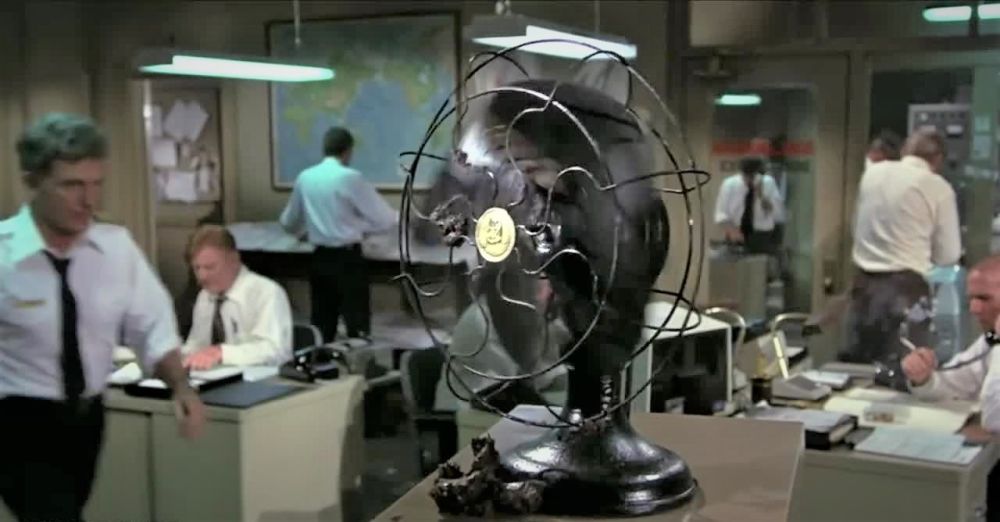Piece of paper: Difference between revisions
Amwelladmin (talk | contribs) No edit summary |
Amwelladmin (talk | contribs) No edit summary |
||
| (2 intermediate revisions by the same user not shown) | |||
| Line 1: | Line 1: | ||
{{anat|negotiation| | {{anat|negotiation|{{image|Shit fan|jpg|When [[credit]] hears about this, the [[When the shit hits the fan|shit’s really going to hit the fan]].}}}}{{dpn|/piːs ɒv ˈpeɪpə/|n|}}''Derogatory [[sales]] slang'': <br> | ||
{{image|Shit fan|jpg|When [[credit]] hears about this, the [[When the shit hits the fan|shit’s really going to hit the fan]].}}}} | :(1) A legal [[contract]]. <br> | ||
:(1) A legal | |||
:(2) Any [[verbiage]] put together by the [[legal eagles]] that gets [[credit]] [[Inclined|across the line]]. <br> | :(2) Any [[verbiage]] put together by the [[legal eagles]] that gets [[credit]] [[Inclined|across the line]]. <br> | ||
'''Usage'''<br> | '''Usage'''<br> | ||
Latest revision as of 13:30, 14 August 2024
|
Negotiation Anatomy™
|
Piece of paper
/piːs ɒv ˈpeɪpə/ (n.)
Derogatory sales slang:
- (1) A legal contract.
- (2) Any verbiage put together by the legal eagles that gets credit across the line.
Usage
Well, you only have yourself to blame. You know what they say: don’t take a piece of paper to a knife fight.
What a piece of paper isn’t
Some of the JC’s hoary old platitudes about what pieces of paper are not for:
Don’t codify internal policy
Contracts are no place to reinforce your internal policies about things, however much internal audit might think that’s a good idea.
For one thing, policies are often stupid, overblown things — no, no, I realise that sounds outrageous but it has been known to be true. Some see policy as “codified overreactions to situations that are unlikely to happen again,” in Jason Fried’s snappy words — and whilst, of course, it is great to have a set of idealised, pedantic[1] steps to ensure things are done properly and nothing gets screwed up, putting those in a contract turns a prudent checklist into a contractually enforceable truncheon with which your counterparty can beat you, should someone disregard those pedantic steps, even if nothing gets screwed up. Some of you might fancy the occasional beating from a contractual truncheon — different strokes for different folks
Now if there is one thing we know about the meatware, it will fail to follow pre-ordained steps, because that’s how the meatware rolls. as an exercise in exalting form at the expense of substance — a cardinal sin in the JC’s playbook — you could hardly ask for a better example.[2] Besides, your policies can and will change. Do you fancy repapering every time that happens?
Don’t ask your counterparty to underwrite your internal governance
Contracts are no place to outsource your own internal policy governance on your counterparty either. Herewith the age-old chestnut of the authorised signatory lists. Likewise, if your counterparty says, for example, “we are a UCITS fund and we can’t enter into term repo trades, so we need a right to terminate on any day, at par” — thereby helping themselves to a free option at your expense, in the name of regulatory compliance — your answer is “If you aren’t allowed to do term trades, the solution is really easy: don’t do freaking term trades. There’s no reason I should underwrite your internal lack of governance.”
Contracts are your last, and weakest, line of defence
If you have to resort to your legal contract to get you out of a pickle, someone has not been doing his job. Your organisation has let a situation that it was meant to be managing get out of hand. Exercising defensive contractual rights is like deploying a smart bomb in Defender, only there’s a fair chance it will blow up in your face.
A risk controller who thinks, let alone says out loud — and it pains me to say that they really do, readers — “at end of the day, if the shit hits the fan, it is all about documentation” needs to be told to get her coat. It is not “all about documentation”. It is about making sure the shit doesn’t hit the bloody fan.
See also
- Don’t take a piece of paper to a knife fight
- La Vittoria della Forma sulla Sostanza
- Risk management
- Contract
- Negotiation
- Legal
References
- ↑ Did I say “pedantic”? I mean “prudent”.
- ↑ Employment lawyers: we don’t often spend time talking to you, but the classic HR error is to put the employer’s pre-agreed procedural steps for conducting any disciplinary hearing into an employment contract. That way any failure to follow that exact process, however pointless, is a breach of contract and no longer simply a question of procedural fairness but, as a clear-cut breach of contract, a substantial unfairness.
